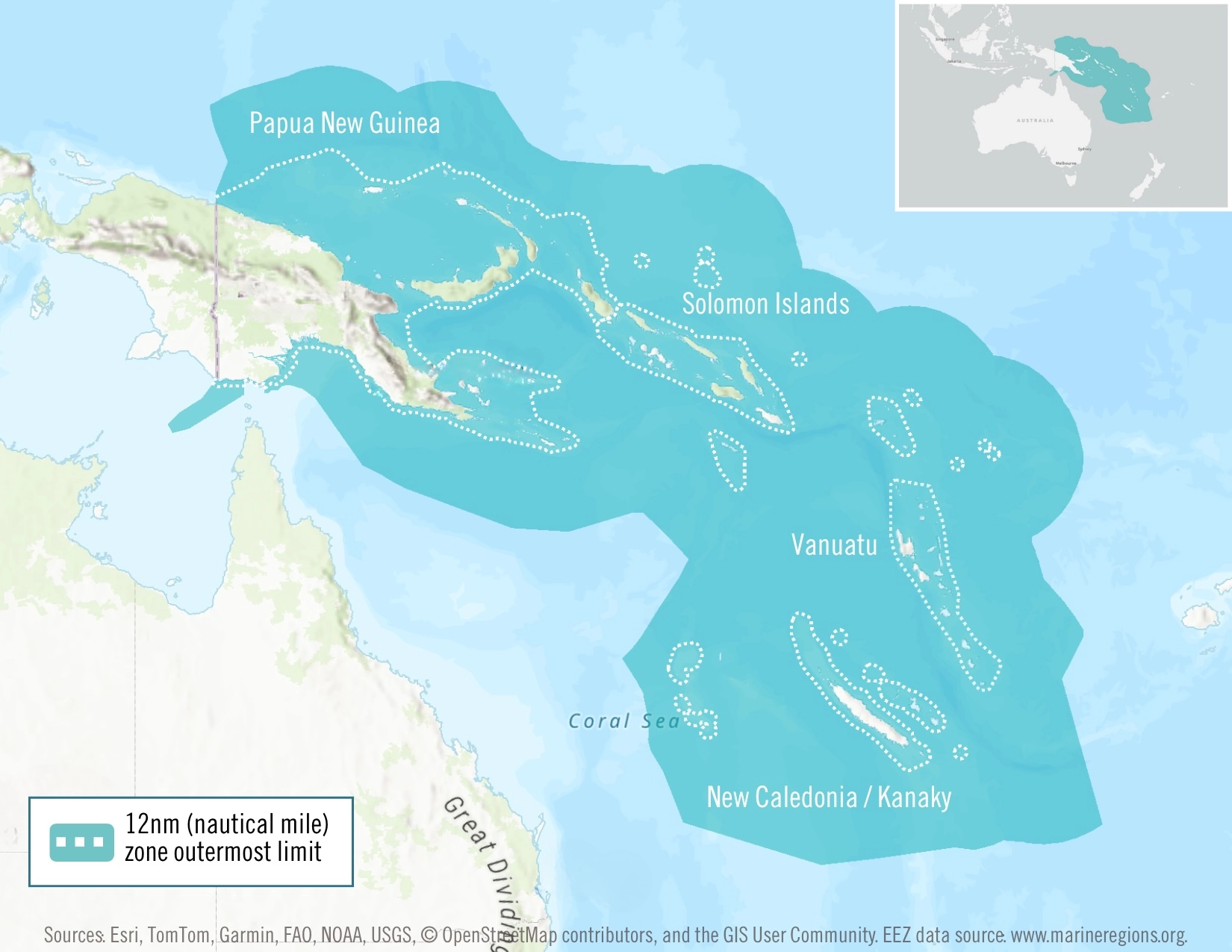The governments of the Solomon Islands and Vanuatu have announced their commitment to create a massive multinational Melanesian Ocean Reserve. If implemented as envisioned, the reserve would become the worlds first Indigenous-led ocean reserve, covering an area nearly as big as the Amazon Rainforest.
Speaking at the U.N. Ocean Conference underway in Nice, France, representatives of both countries said the vision for the ocean reserve is to cover at least 6 million square kilometers (2.3 million square miles) of ocean and islands. The reserve will include the combined national waters of the Solomon Islands, Vanuatu and Papua New Guinea, and extend to the protected waters of New Caledonias exclusive economic zone. All of the island countries, largely inhabited by Indigenous Melanesians, are located in the southwestern Pacific Ocean, within the region known as Melanesia.
The Melanesian Ocean Reserve will give the governments and peoples of Melanesia the ability to do much more to protect our ancestral waters from those who extract and exploit without concern for our planet and its living beings. We hope our Indigenous stewardship of this vast reserve will create momentum for similar initiatives all over the world, Vanuatus environment minister, Ralph Regenvanu, said in a joint press release.
Melanesia is one of the worlds most biodiverse regions, hosting an incredible diversity of both land and marine species, including an estimated 75% of known coral species and more than 3,000 species of reef-associated fish.
The governments of the Solomon Islands and Vanuatu reportedly conceived of the Melanesia Ocean Reserve during last years U.N. Biodiversity Conference in Cali, Colombia. Conversations with government officials from New Caledonia and Papua New Guinea are ongoing, according to the planned ocean reserves website.
We the people of Solomon Islands and Vanuatu have quietly protected more than 150,000 square km [58,000 mi2] of the ocean, the website notes. Our territorial seas & are protected. Yet illegal fishing (IUU) vessels steal from these zones daily, and we need greater partnership to fully protect the EEZs.
The details of the reserve are yet to be worked out, but it aims to permit only sustainable economic activities consistent with Indigenous values in these waters, the press release noted. Its unclear, though, how Papua New Guineas deep-sea mining plans, despite community opposition, fit within the vision for the reserve.
Jeremie Katidjo Monnier, New Caledonias environment minister, announced his countrys support for the Melanesian Ocean Reserve project at the U.N. Ocean Conference, according to a statement by the IUCN, the global conservation authority.
He added that New Caledonians have officially voted for a moratorium on the exploitation and exploration of our seabed until 2075.
 Image: The envisioned Melanesian Ocean Reserve. Image courtesy of the Melanesian Ocean Reserve
Image: The envisioned Melanesian Ocean Reserve. Image courtesy of the Melanesian Ocean Reserve
Banner image: Off Ulawa Island, Solomon Islands, a circle of Indigenous fishermen catch scad by forming a circle, honoring the oceans gift. Image courtesy of Suumoli village, Makira-Ulawa province, Solomon Islands.


